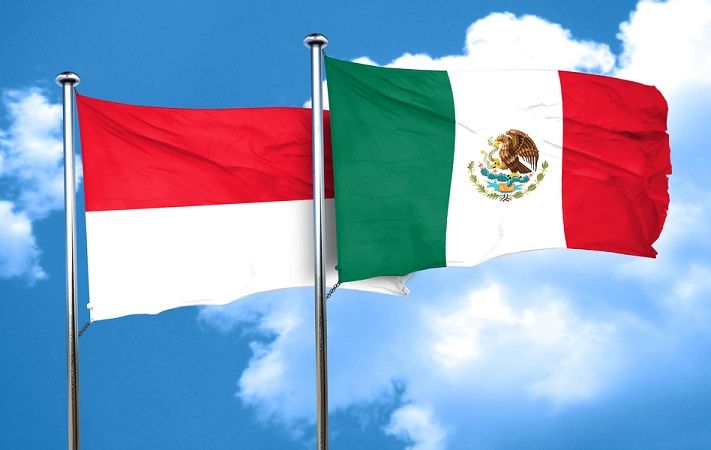Learning
Half the World’s Population Will Vote in Election Polls in 2024

Half the world’s population will go to election polls in 2024. This global event will shape the future of nations and the lives of billions. The outcome of these global elections will have significant implications for economies, policies, and international relations.
As we approach this historic moment, it’s crucial to understand the impact and far-reaching consequences of the choices made by voters across the globe.
The Global Election Landscape in 2024
2024 is poised to be crucial in the global political landscape, with numerous countries gearing up for pivotal elections.
These events hold significant weight for the individual nations involved and the broader spectrum of global democracy and governance.
Countries Facing Crucial Elections
Several nations are set to navigate pivotal elections in 2024, with their outcomes likely to influence domestic policies and international relations. As of now, some of the countries preparing for significant elections include:
- The United States of America, where the presidential election will determine the country’s domestic and foreign agendas.
- India, as the world’s largest democracy, is bracing for a general election that will shape the nation’s trajectory and impact regional dynamics.
- Brazil, a key player in South American politics, will undergo a presidential election with repercussions across the continent and beyond.
The Impact of Elections on Global Democracy
The outcome of elections in these and other nations holds immense implications for global democracy.
These elections’ policies and leadership choices can influence international alliances, trade agreements, and policies on critical issues such as climate change and LGBTQ security.
The collective impact of these elections on global democracy underscores the interconnected nature of modern governance and the significance of each nation’s domestic electoral processes. These events serve as a reminder of the intricate web of influence that shapes the international political landscape.
For more in-depth information on specific elections and their potential impacts, refer to reputable sources such as The Economist and the Council on Foreign Relations.

The United States Presidential Race
The 2024 U.S. presidential election holds immense significance as it will shape the country’s direction and have a global impact. The policies and decisions of the next president will influence the economy, foreign relations, and domestic affairs, making this election crucial for the nation’s future.
Significance of the U.S. 2024 Elections
The U.S. 2024 elections are significant due to the nation’s pivotal issues, including climate change, healthcare reform, and socioeconomic inequality.
Additionally, the election outcome will determine the trajectory of U.S. foreign policy, especially in addressing geopolitical tensions with countries like Russia, China, and Iran.
Potential Candidates and Their Influence
Several potential candidates have emerged, each with a unique influence on the political landscape. Figures like Vice President Kamala Harris and Senators Elizabeth Warren and Ted Cruz will likely play prominent roles in the campaign.
Their policy proposals, leadership styles, and ability to resonate with voters will shape the dynamics of the race.
For more information on the potential candidates and their policy agendas, visit CNN’s coverage of the 2024 presidential race for in-depth analysis and insights.
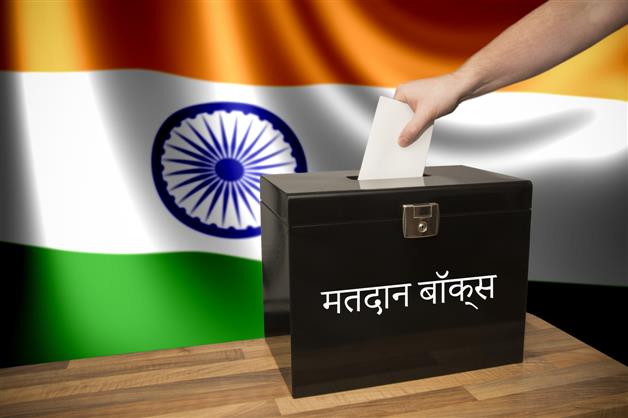
India’s Electoral Battleground
India, the world’s largest democracy, is at a critical juncture as it approaches the 2024 elections. The outcomes will not only shape the nation’s future but will also have global implications.
As India’s diverse and vibrant political landscape takes center stage, it’s essential to delve into the key issues and expectations set to define the upcoming elections in the country.
The World’s Largest Democracy at a Crossroads
India, with its rich culture, traditions, and ideologies, is gearing up to showcase its democratic enthusiasm once again.
With over 900 million eligible voters, the country presents a kaleidoscope of political dynamics, reflecting the aspirations and concerns of its populace.
The 2024 polls are anticipated to witness intense competition, with political parties vying to address pressing socioeconomic challenges and chart a course for India’s future.
Key Issues and Expectations in India’s Elections
The electoral battleground in India is primed with many critical issues that encapsulate the electorate’s concerns. From economic revival and job creation to healthcare accessibility and national security, the electorate’s expectations are diverse and profound.
Furthermore, the performance of incumbent leaders, diplomatic relations, and technological advancements are anticipated to influence voter sentiment. As the political narrative unfolds, the nation awaits to witness how these central themes resonate with the citizens and shape their electoral choices.
For more information on the current political landscape in India, visit the Times of India’s election section for comprehensive coverage and analysis.
The journey through India’s electoral landscape unravels a compelling narrative, offering a glimpse into the intricate fabric of the nation’s democratic ethos and the aspirations of its people.
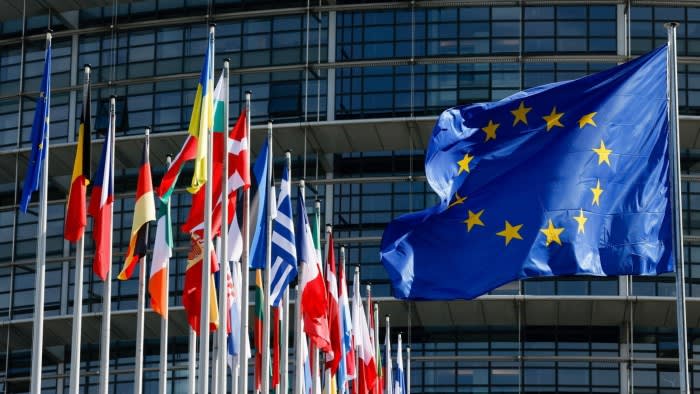
European Union’s Political Shifts
The European Union (EU) has been experiencing significant political shifts in recent years, with the rise of extreme right-wing ideologies in various member states.
This has led to a reconfiguration of the political landscape and has sparked debates on the implications of such shifts on the EU’s legislative framework and governance.
The Rise of the Extreme Right
The surge of nationalist right-wing parties and movements across the EU has challenged the traditional political order. These entities advocate for nationalist agendas, anti-immigration policies, and skepticism towards supranational institutions.
Parties such as Marine Le Pen’s National Rally in France and the Alternative for Germany (AfD) have gained traction, impacting the dynamics within the European Parliament and national legislatures.
Legislative Changes and Their Implications
As a result of the political shifts, legislative changes are being introduced, reflecting a reorientation of policy priorities. The implications of these changes are substantial, influencing key areas such as immigration laws, trade agreements, and environmental regulations.
Moreover, the evolving political landscape has necessitated recalibrations in diplomatic relations and foreign policy strategies within the EU and its interactions with global partners.
In understanding the impact of these developments, it is crucial to examine the broader socioeconomic context and the implications for EU citizens and residents.
The adjustments in legislative agendas signal a reevaluation of the EU’s role in addressing contemporary challenges while balancing divergent political ideologies within its decision-making processes.
For more information on the current political climate within the EU, visit European Parliament News and European Commission Priorities.
Indonesia and Mexico: Regional Power Elections
Indonesia is the largest Muslim country globally, wielding significant influence in Southeast Asia. This sprawling archipelago grapples with the dual forces of Islamic conservatism and efforts to promote pluralism.
As Indonesia heads to the polls in 2024, the election will serve as a barometer of the country’s stance toward democracy, religious tolerance, and economic development. The incumbent government faces the challenge of balancing the aspirations of a young, tech-savvy population with the demands of tradition and religion.
The election outcome will undoubtedly impact Indonesia and the broader Asian region.
Mexico is pivotal in Latin America and positioned as a key player in regional politics and economics. As Mexico gears up for the 2024 elections, the focus is on addressing pervasive issues such as corruption, crime, and economic inequality.
The outcome of the election will have a far-reaching impact on Mexico’s relationship with the United States, trade agreements, and efforts to combat drug trafficking.
The election allows Mexico to bolster its democratic institutions and initiate reforms to address longstanding challenges and shape its trajectory in the coming years.
Cross-Strait Relations and Taiwan’s Elections
Taiwan’s forthcoming presidential election holds significant implications for the island’s relations with China.
The tension between Taiwan and China has been rising steadily, with cross-strait communications put on hold since 2016 due to Beijing’s refusal to engage with President Tsai Ing-wen’s Democratic Progressive Party (DPP) administration.
These elections are critical, as larger trends make it harder for the parties to manage their differences. China’s increased resolve to unify with Taiwan and threatening military maneuvers have cooled public sentiment toward the mainland.
Additionally, the rivalry between the U.S. and China has elevated the Taiwan issue’s stakes, leading to more overt military and political support from the U.S. and pushback from China.

The World Watching Taiwan’s Democratic Test
Taiwan’s next leader will significantly steer the island through this period of cross-strait turbulence. With President Tsai completing the two allowed terms, a leadership change is inevitable, regardless of the winning party.
The main candidates in Taiwan’s presidential race have contrasting ideas on handling tensions with China, which will likely impact relations between Beijing and Taipei.
The elections have garnered global attention as the world watches to see how Taiwan’s democratic test and its aftermath will unfold.
For more information on Cross-Strait Relations, you can visit Crisis Group and read about the rising tensions and their implications.
Other Notable Elections Around the World
Pakistan’s Legislative Uncertainty
Pakistan is facing legislative uncertainty as it prepares for its next election. The country has a history of political turbulence, and the upcoming election is crucial for shaping the future of its governance.
The competition between the ruling party, Pakistan Tehreek-e-Insaf (PTI), and the opposition parties adds to the political complexity. To stay updated on Pakistan’s evolving political landscape, visit BBC News’s coverage for in-depth analysis and insights.
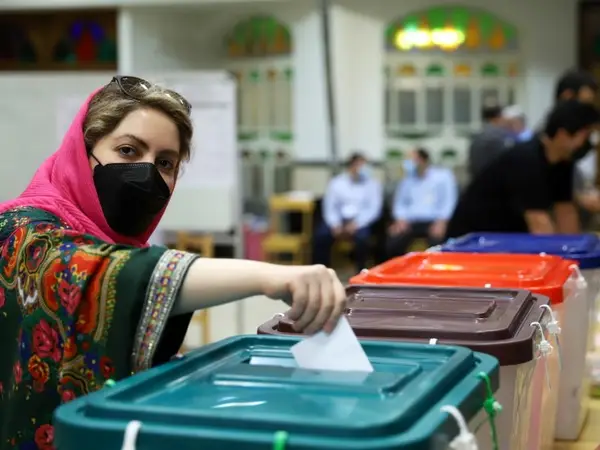
Iran’s Political Landscape
Iran’s political landscape is marked by its unique blend of theocratic and democratic elements. The upcoming elections in 2024 will have a profound impact on the country’s domestic and international relations.
Understanding Iran’s complex political dynamics requires insight into its historical context and current affairs. For comprehensive coverage of Iran’s political developments, refer to Al Jazeera’s dedicated section for the latest updates and perspectives.
Venezuela’s Presidential Aspirations Amidst Crisis
Venezuela’s upcoming presidential election is set against a deepening economic and humanitarian crisis. The political aspirations of competing candidates and the role of international actors add complexity to the electoral process.
To grasp the nuances of Venezuela’s political landscape, explore Reuters’ coverage for in-depth reporting and analysis.
Ukraine’s Elections During Conflict
Ukraine faces the challenge of conducting elections amidst ongoing conflict and geopolitical tensions.
The country’s electoral process holds significant implications for its internal stability and international relations.
To understand Ukraine’s political environment comprehensively, delve into DW’s feature on Ukraine to stay informed about the latest developments and perspectives.
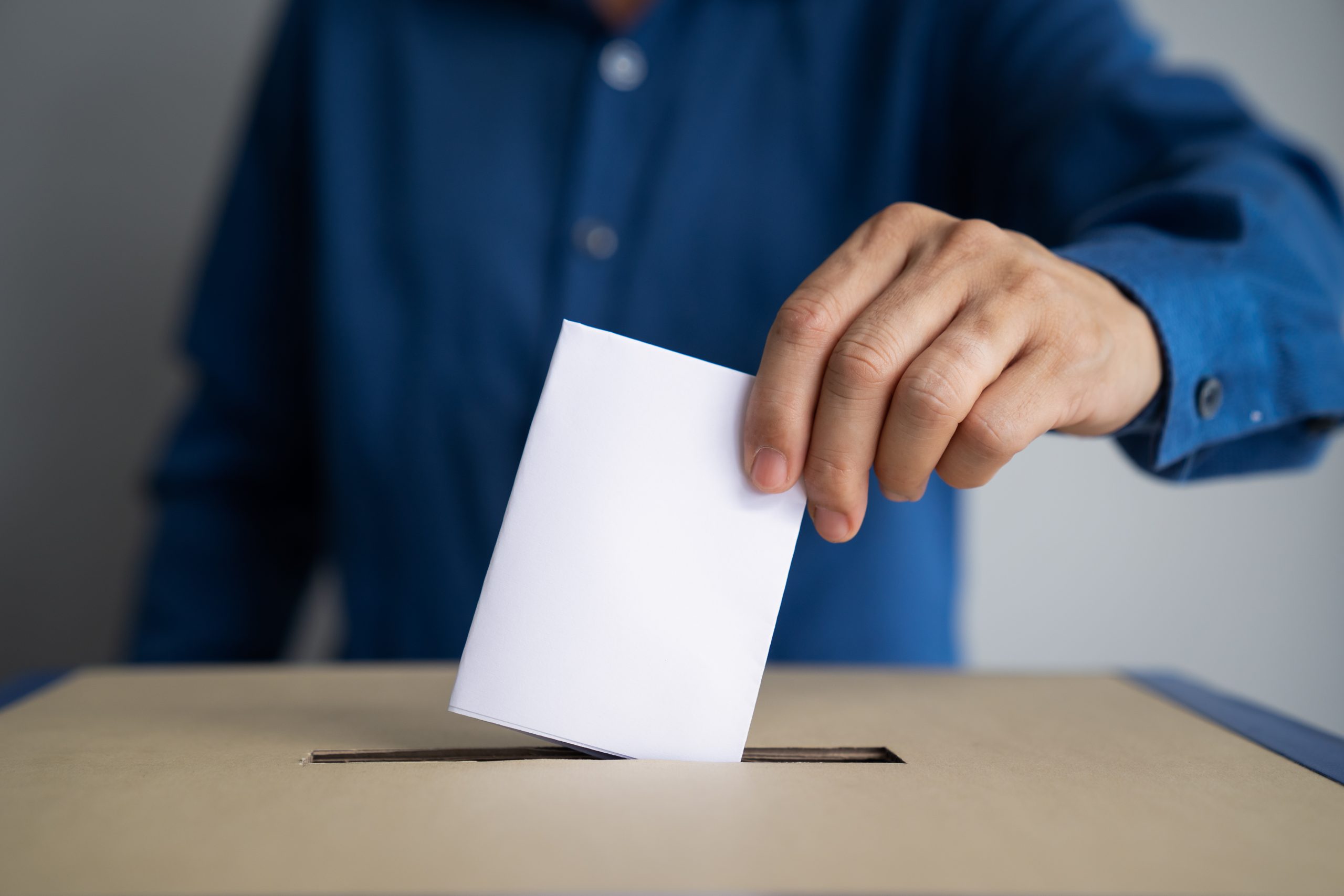
The State of Democracy and Election Integrity
Global Trends in Democratic Health
The state of democracy worldwide is a topic of intense scrutiny and analysis. Organizations such as the Freedom House provide comprehensive reports on the global trends in democratic health, assessing countries’ political rights and civil liberties.
These reports offer valuable insights into democratic governance, highlighting areas of progress and concern. With the 2024 elections approaching, it is crucial to monitor and understand the evolving landscape of democracy on a global scale.
Concerns Over Election Fairness
The issue of election fairness has come under increasing scrutiny in recent years. Voter suppression, electoral fraud, and manipulation have raised concerns about the integrity of democratic processes.
Organizations like the Carter Center work to monitor elections around the world, identifying and addressing challenges to election fairness. As half the world’s population prepares to go to the polls in 2024, ensuring the integrity and fairness of the electoral process is paramount for upholding democratic principles and values.
Autocracy on the Rise
Amidst the backdrop of global democratic health and concerns over election fairness, the rise of autocratic tendencies poses a significant challenge to the future of democracy.
Countries such as Hungary and Turkey have witnessed democratic backsliding, raising questions about the durability of democratic institutions.
The impact of autocracy on the electoral landscape cannot be overlooked, as it can potentially influence the conduct and outcome of elections, threatening the very foundation of democratic governance.
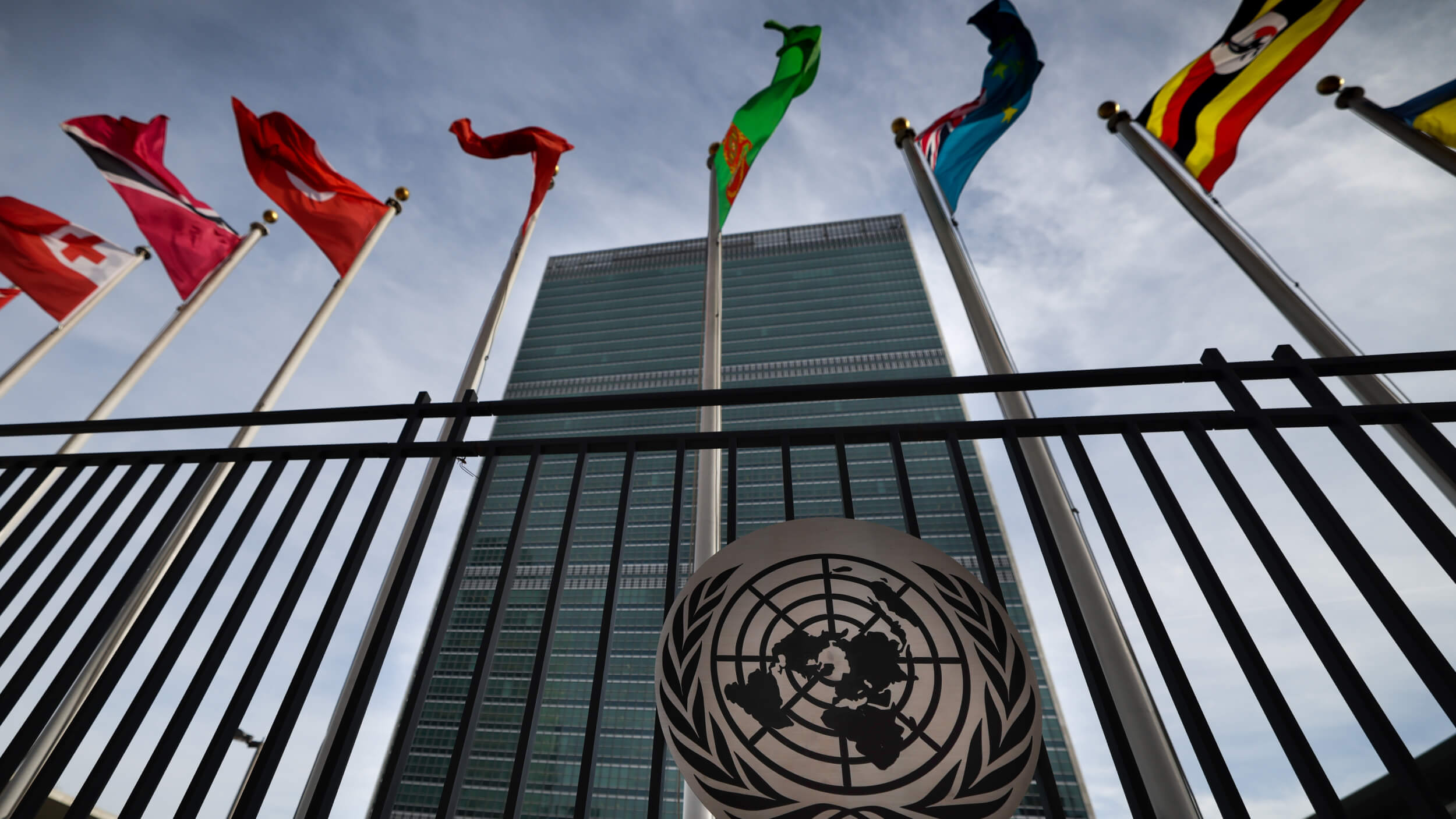
The Consequences of Election Outcomes on International Relations
The outcomes of elections in 2024 have the potential to trigger significant geopolitical shifts and alliances. Countries will reevaluate their relationships and reposition themselves based on the new leadership and policies in power.
This could lead to realignments in global power dynamics, impacting international cooperation, security arrangements, and diplomatic ties.
Geopolitical Shifts and Alliances
The geopolitical landscape is likely to witness a reshuffling of alliances and partnerships following the 2024 elections. Countries may seek new allies or strengthen existing alliances to advance their strategic interests.
This could lead to unexpected collaborations and tensions between traditional allies. The ripple effects of these shifts could create a more complex and multifaceted global order.
The Influence of Election Results on Trade and Economy
Election outcomes can significantly influence trade and economic relationships between nations. New leadership may pursue different trade policies, renegotiate trade agreements, or impose tariffs, impacting global commerce.
The resulting economic fluctuations could affect industries, supply chains, and consumer markets worldwide. Businesses must adapt to evolving trade dynamics and market conditions, influencing global economic stability and growth.
For additional information on geopolitical shifts and alliances, refer to the Council on Foreign Relations, and for insights into economic impacts, visit the Brookings Institution.

The Role of Voters in Shaping the Future
Voter Turnout and Engagement Importance
Voter turnout and engagement are crucial to any election, as they directly influence a country’s future direction. When a larger percentage of the population actively participates in the electoral process, it ensures that the government is more representative of the people’s will.
High voter turnout also signifies a healthy democracy, where citizens feel empowered to make their voices heard and contribute to decision-making.
According to the Election Assistance Commission, high voter turnout indicates a well-functioning democracy, reflecting widespread civic participation and a vibrant political landscape.
Engagement goes beyond simply casting a ballot, encompassing informed decision-making and active involvement in political discourse. In an era where climate change, social justice, and economic equality take center stage, voter engagement ensures that the electorate is well-informed and motivated to influence policies that align with their beliefs and values.
Platforms like Rock the Vote play a vital role in promoting voter engagement, providing resources and tools to educate and mobilize citizens, particularly the youth, in shaping the future through active participation in the electoral process.
The Youth’s Impact on Election Results
The youth demographic significantly influences election outcomes, making participation pivotal in shaping the future. With their fresh perspectives, idealism, and passion for change, young voters have the potential to sway election results and drive the agenda toward issues that resonate with their generation.
Organizations such as Young Invincibles are at the forefront of mobilizing young voters, recognizing that their involvement is instrumental in reflecting the evolving needs and aspirations of the population.
Empowering the youth to exercise their voting rights is essential for fostering an inclusive and forward-thinking political landscape.
Their sheer numbers and capacity for innovation and adaptability elevate their role in influencing policy directions and electing leaders prioritizing issues such as education, employment, and sustainability.
As the next generation of leaders and changemakers, the youth hold the potential to steer the trajectory of societies worldwide, making their engagement in the electoral process a cornerstone of shaping the future.
The upcoming 2024 elections in over 70 countries, representing almost half the global population, will have significant geopolitical and democratic implications.
The outcomes of these elections could potentially impact international relations, global stability, and the direction of democratic governance worldwide. The world will be closely watching the results of these elections and the subsequent implications for the future.
By Geoff Thomas

Learning
First-Time Buyer’s Guide to the UK Property Market

Entering the UK property market as a first-time buyer can feel both exciting and daunting. The process is filled with potential pitfalls and complex decisions, but with the right guidance, it can be navigated smoothly. The estate agents in Yorkshire demystify the journey from the initial decision to buy a home to the moment you step over the threshold of your new property.
Understanding Your Financial Position
The first and perhaps most crucial step in the home-buying process is understanding your financial situation. This includes assessing your savings, income, and current debts. Here’s how you can prepare:
1. Deposit: Generally, you’ll need at least 5% of the property price as a deposit, though aiming for 10% or more can provide better mortgage rates.
2. Income and Expenses: Use a budget planner to assess your monthly income against your expenses. This will help you understand how much you can afford in monthly mortgage repayments.
3. Credit Score: Lenders will evaluate your credit score to determine your mortgage eligibility. So it’s important to have a good credit score, and you should work on it if required.
4. Mortgage Options: Speak to a mortgage advisor to understand different types of mortgages, such as fixed-rate, variable-rate, and help-to-buy schemes.
Getting a Mortgage Agreement in Principle
A Mortgage Agreement in Principle (AIP) is a statement from a lender indicating how much they’ll likely lend you. You will be a more attractive buyer with an AIP as it shows sellers you’re serious and financially prepared.
Deciding What You Want
Before you start viewing properties, it’s essential to know what you’re looking for. Consider the following factors:
1. Location: Proximity to work, schools, public transport, and amenities are key. Research neighbourhoods to find the best fit for your lifestyle.
2. Property Type: Decide whether you want a flat, terraced house, semi-detached, or detached property. Each has its pros and cons.
3. Must-Haves: Make a list of non-negotiables, such as the number of bedrooms, garden size, and parking facilities.
4. Future Proofing: Consider your future needs. Are you planning to start a family? Do you need space for a home office?
Starting the Property Search
With a clear idea of what you’re looking for, you can begin your property search. Here are some tips:
1. Use Online Portals: Websites like Rightmove, Zoopla, and OnTheMarket are excellent starting points. Set up alerts to get notified of new listings that meet your criteria.
2. Visit Estate Agents: Register with local estate agents who can provide insights into the market and inform you of new properties before they’re listed online.
3. Attend Viewings: Don’t rush this part. Visit several properties to get a feel for what’s available in your price range.
Making an Offer
Once you find a property you love, it’s time to make an offer. Here’s how to approach it:
1. Research: Check the selling prices of similar properties in the area to gauge a fair offer.
2. Negotiate: Don’t be afraid to negotiate. The starting point is most usually the asking price.
3. Conditions: You might include conditions in your offer, such as the inclusion of certain fixtures or a specific moving date.
The Legal Process
If your offer is accepted, the legal process begins. You’ll need a solicitor or licensed conveyancer to handle the legalities. Here’s what to expect:
1. Conveyancing: This is the legal transfer of property ownership. Your solicitor will handle this, including conducting searches, dealing with the Land Registry, and transferring the funds.
2. Surveys and Inspections: Arrange for a property survey to check for structural issues. There are different types of surveys, from basic condition reports to full structural surveys.
3. Mortgage Finalisation: Once the survey is complete and satisfactory, your mortgage can be finalised.
4. Exchange of Contracts: This is when the sale becomes legally binding. You’ll pay your deposit at this stage.
5. Completion: On the agreed completion date, the remaining money is transferred, and you receive the keys to your new home.
Moving In
Moving day can be hectic, but planning can ease the stress:
1. Hire a Removal Company: Book a reliable removal company well in advance. Discover the best deals by getting quotes from multiple companies.
2. Pack Strategically: Label your boxes by room and keep essential items accessible.
3. Notify Utilities and Change Address: Inform your utility providers of your move date and update your address with banks, the DVLA, and other important institutions.
Settling In
Get settled. Introduce yourself to the neighbours, familiarise yourself with the local area, and really start to make the place your own.
Here are a few final tips:
1. Safety Checks: Make sure that your smoke alarms and carbon monoxide detectors are working, and make sure that you know where the gas and electricity meters are located.
2. Maintenance Plan: Keep a record of the smooth functioning of your new home with a maintenance schedule, complete with regular checks and seasonal tasks.
3. Personal Touches: Add personal touches to make the space feel like home. This can be from putting up family photos or redoing the decoration in your rooms.
Conclusion
Buying your very first home in the UK is most definitely a milestone, difficult and full of challenges but rewarding in the end. Such a philosophy guides you in understanding finances and knowing what you want to achieve from detailed research, and seeking professional advice that confidently helps you navigate the property market. Yes, the journey may have its hurdles, but in the end—owning your own home—the reward will be worth the effort. Welcome to your new chapter!
SEE ALSO: Conquer the Chaos: Hacks to Clean Your Home in Half the Time
Learning
5 Health Benefits of Regular Pedicures

There’s nothing quite like a pedicure to keep your feet looking and feeling their best, but did you know that pedicures do more than simply enhance the appearance of your feet? Many people don’t realize that regular pedicures can come with a wide range of health benefits that can promote the well-being of your feet, so here are some ways that your routine pedicure keeps both your toenails and feet in the best condition possible!
Smoother Skin
One of the biggest misconceptions about pedicures is that they only cater to and look after your toenails. While you’ll definitely be leaving each session with a fresh coat of nail polish, your pedicure can also do wonders for the health of your skin. Aside from trimming and shaping your nails and cuticles, you’ll notice that your nail technician also dedicates a few steps to the skin of your feet.
After inspecting your feet and looking for any issues or imperfections that may need to be addressed, your technician will work on an exfoliating scrub to remove any dead skin cells. This step may also be aided by a foot file, which can be used to buff away any calluses and other problem areas manually.
Softer Skin
After your nail technician addresses all the problem areas of your feet and removes any unwanted dead skin cells, he or she will often massage in a moisturizing product, such as lotion, cream, or butter, to ensure that your skin is properly moisturized. These products contain skin-loving ingredients that will ensure that your feet have everything they need to look and feel their best so that you can walk out of your pedicure with a renewed sense of confidence.
Healthier Nails
After your pedicure session, your nails will not only look better due to the fresh coat of nail polish, but they’ll also be healthier and stronger. This is because your nail technician takes their time to ensure that your nails are properly looked after through steps that include deep cleaning, nail trimming, nail filing, and cuticle care. All of these things work together to prevent issues like ingrown nails from occurring, all the while improving the appearance of your nails.
Increased Blood Circulation
While the specific steps included in your pedicure will depend on the beauty salon, most pedicures will have a massage step somewhere in the mix. One of the often overlooked benefits of these massages is the increased blood circulation, which can deliver more nutrients and oxygen to your feet and nails, promoting their health and appearance. Aside from that, better blood flow means reduced tension and soreness, as well as better distributed heat throughout your body.
Reduced Infections
A significant amount of dirt and bacteria can build up on your feet without you even realizing it, but pedicures can be a great way to prevent these from happening in the first place. The exfoliation step of a pedicure removes dead skin cells as well as all the debris that may have accumulated underneath, and the deep cleaning of your toenails and cuticles also gets rid of any impurities that may have slipped beneath them, which can stop infections from happening.
These are some of the many health benefits that you can look forward to at your next pedicure appointment. However, it’s worth noting that you need to book regular sessions to truly reap all the rewards. This can be difficult, especially when you don’t feel like driving to your nearest nail salon after a long day, but the good news is that you can enjoy the salon experience in the comfort of your own home with a home pedicure service.
Learning
Commercial Boiler Installation Services London

For businesses in the bustling city of London, having a reliable heating system is crucial. Whether you’re opening a new office, expanding your current premises, or simply upgrading an outdated system, commercial boiler installation services for businesses in London are essential to ensure your operations run smoothly and efficiently. Proper installation and maintenance of commercial boilers can make a significant difference in energy efficiency, cost savings, and the overall comfort of your workspace.
The Importance of Professional Installation
When it comes to installing a commercial boiler, professional expertise is paramount. Here’s why:
- Efficiency and Performance: Professional installation ensures that your boiler operates at peak efficiency, reducing energy consumption and lowering utility bills. A well-installed boiler can effectively meet the heating demands of your business without unnecessary energy waste.
- Safety: Commercial boilers are complex systems that require precise installation to operate safely. Professional installers adhere to stringent safety standards and regulations, minimizing the risk of accidents and ensuring the safety of your employees and premises.
- Compliance with Regulations: Commercial properties are subject to various building codes and regulations. Professional installers are well-versed in these requirements and ensure that your boiler system complies with all local laws and standards.
- Longevity and Reliability: Proper installation is critical to the longevity and reliability of your boiler. A professional installation can prevent common issues such as leaks, pressure problems, and system failures, ensuring that your boiler runs smoothly for years to come.
Key Considerations for Commercial Boiler Installation
When planning for a commercial boiler installation, several factors need to be considered:
- Type of Boiler: The type of boiler you choose will depend on your business’s specific needs. Options include gas boilers, oil boilers, and electric boilers, each with its own set of advantages. Consulting with a professional can help you determine the best choice for your business.
- Sizing and Capacity: The boiler’s size and capacity must match the heating demands of your commercial space. An undersized boiler will struggle to meet your needs, while an oversized one will lead to inefficiencies and higher costs.
- Location: The placement of your boiler affects its efficiency and accessibility for maintenance. Professional installers can help you choose the optimal location for your boiler.
- Integration with Existing Systems: If you’re upgrading or replacing an existing boiler, it’s essential to ensure compatibility with your current heating system. Professional installers can seamlessly integrate the new boiler with your existing setup.
Choosing the Right Installation Service

Selecting the right installation service provider is crucial to the success of your boiler installation project. Consider the following when making your choice:
- Experience and Expertise: Look for a provider with a proven track record in commercial boiler installations. Experienced installers can handle the complexities of commercial systems and provide high-quality workmanship.
- Reputation: Check reviews and testimonials from previous clients to gauge the provider’s reliability and customer satisfaction.
- Comprehensive Services: Choose a provider that offers a full range of services, including installation, maintenance, and repair. This ensures that all your boiler needs are met by a single, trusted source.
In London, ROWLEN is a reputable name known for delivering top-notch commercial boiler installation services. Their team of experts is dedicated to providing efficient, safe, and compliant installations tailored to the unique needs of businesses.
Conclusion
Investing in professional commercial boiler installation services for businesses in London is essential for ensuring efficiency, safety, and long-term reliability. By choosing an experienced and reputable service provider like ROWLEN, you can rest assured that your heating system will be installed correctly and maintained to the highest standards. Proper installation not only enhances the performance of your boiler but also contributes to the overall comfort and productivity of your business environment.
SEE ALSO:
-

 News3 years ago
News3 years agoLet’s Know About Ultra High Net Worth Individual
-
Entertainment2 years ago
Mabelle Prior: The Voice of Hope, Resilience, and Diversity Inspiring Generations
-

 Health3 years ago
Health3 years agoHow Much Ivermectin Should You Take?
-

 Tech2 years ago
Tech2 years agoTop Forex Brokers of 2023: Reviews and Analysis for Successful Trading
-

 Lifestyles3 years ago
Lifestyles3 years agoAries Soulmate Signs
-

 Movies2 years ago
Movies2 years agoWhat Should I Do If Disney Plus Keeps Logging Me Out of TV?
-

 Health3 years ago
Health3 years agoCan I Buy Ivermectin Without A Prescription in the USA?
-

 Learning2 years ago
Learning2 years agoVirtual Numbers: What Are They For?
